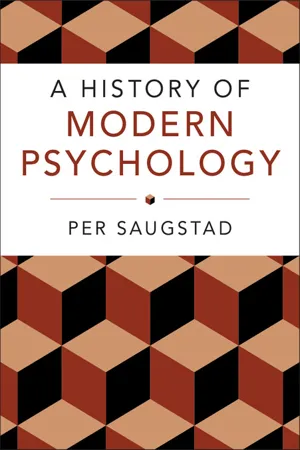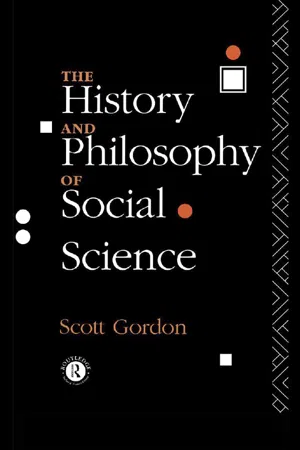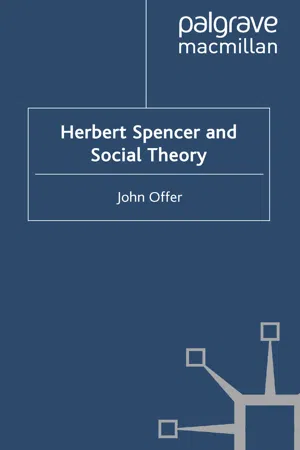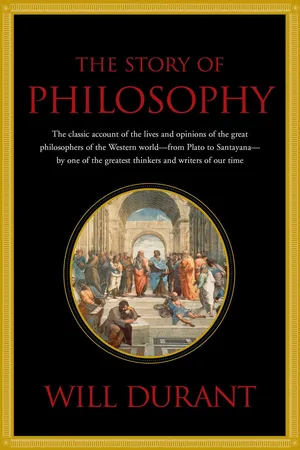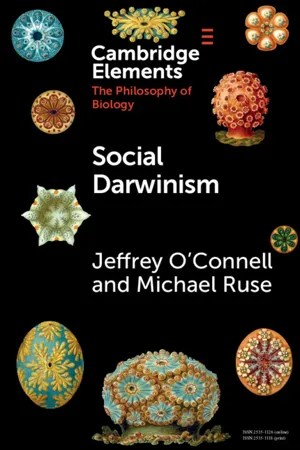Social Sciences
Herbert Spencer
Herbert Spencer was a prominent 19th-century English philosopher and sociologist known for his contributions to social Darwinism and the theory of evolution. He applied the principles of natural selection to human societies, arguing that societies evolve and progress through competition and adaptation. Spencer's ideas had a significant influence on the development of sociology and social theory.
Written by Perlego with AI-assistance
Related key terms
1 of 5
10 Key excerpts on "Herbert Spencer"
- eBook - ePub
- Mark Francis, Michael Taylor, Mark Francis, Michael Taylor, Mark Francis, Michael W. Taylor(Authors)
- 2014(Publication Date)
- Routledge(Publisher)
6 Herbert Spencer, Biology, and the Social Sciences in Britain Chris Renwick DOI: 10.4324/9781315744162-6In 1906, J. Arthur Thomson, the Scottish biologist and Regius Professor of Natural History at the University of Aberdeen, published a short book on Herbert Spencer's life and biological ideas. According to Thomson, there was one term that summed up Spencer more than any other: “arch-heretic”. The reason was that there were so many things Spencer was against, including theology, metaphysics, monarchy, “molly-coddling legislation”, classical education, socialism, war and the German biologist August Weismann. Thus, “it was not to be wondered at”, Thomson explained, that “we find extraordinary difference of opinion as to the value of the great Dissenter's deliverances”. Moreover, it was not surprising that scientists were among the biggest doubters, telling “us that Spencer may have been a great philosopher, but that he was too much of an a priori thinker to be of great account to science” (Thomson 1906 : vii–viii). In Thomson's opinion, though, those scientists were wrong:In an age of specialism [Spencer] held up the banner of the Unity of Science, and he actually completed, so far as he could complete, the great task of his life – greater than most men have even dreamed of – that of applying the evolution-formula to everything knowable. He influenced thought so largely, he inspired so many disciples, he left so many enduring works – enduring as seed-plots, if not also as achievements – that his death, writ large, was immortality.(Ibid.: ix)11 For more on Thomson see Bowler (2005 , 2009a ).Thomson's assessment of Spencer is important because it contains a number of the ideas that people, including historians of science, have held to be true of Spencer, in some cases since he started writing about evolution in the mid-nineteenth century but, more commonly, since his death in 1903. At the most fundamental level, and most simply put, people do not see Spencer as mattering that much to science. This is particularly true of biology and the social sciences, in particular the areas in which the two intersect, where Spencer has been seen as a persona non grata for over a century now. On the one hand, he is frequently seen as someone who played no real role in the shaping of biology as it has been handed down to the present. As the biologist Ernst Mayr famously put it when explaining why his 1,000-page book The Growth of Biological Thought included just three paragraphs on Spencer, it is “quite justifiable to ignore Spencer totally in a history of biological ideas because his positive contributions were nil” (1982: 386). On the other hand, Spencer is viewed as the pantomime villain of late-nineteenth-century evolutionary thinking: the man who coined the phrase “survival of the fittest” and therefore opened the floodgates for misinterpretations of Darwin's meaning for human society (see e.g. Gould 2000 - eBook - PDF
- Per Saugstad(Author)
- 2018(Publication Date)
- Cambridge University Press(Publisher)
In 1848, he became one of the editors of the periodical The Economist, and through his work as an editor, he became acquainted with a large number of influential writers and thinkers in Great Britain. At an early age, Spencer was inspired by Lamarck’s idea that life is steadily evolving towards greater perfection. He believed the same progression to be found in biological evolution is present also in social and cultural development. Inspired by the publica- tion of Darwin’s work on the origin of species, Spencer decided he would show that the same progression is present in biological, psychological, and sociological phenom- ena. In a work of ten volumes, his Synthetic Philosophy, he gave an account of what he considered to be the progressive development within these fields. Two of the ten volumes were devoted to psychology. By 1855, Spencer had also published a compre- hensive work entitled The Principles of Psychology. He extended and revised this work in the two psychology volumes in The Synthetic Philosophy, which appeared in 1870 and 1872. Spencer’s philosophy represented new and interesting ideas. He had faith in progress and stressed that development towards greater perfection takes place as a struggle in which the fittest survive. This idea appealed to members of the British middle class, who, after hard political struggles, had become the leading social class and had accumulated great wealth, whereas industrial and agricultural workers lived in poverty and the landed gentry were in decline. Spencer became a champion of a liberalist economy. He also claimed the political and economic leadership of Great Britain and the West are the result of progressive development. Hence, there were prominent features in his philosophy that Herbert Spencer (1820–1903) 121 made it particularly attractive to many intellectuals of the nineteenth century, not least in the United States, where his ideas were frequently confused with Darwin’s. - eBook - PDF
- Alberto Mingardi(Author)
- 2011(Publication Date)
- Continuum(Publisher)
5 Who Should Read Spencer Today? A philosopher for the Victorian age, Herbert Spencer was forgotten – if not altogether reviled – for most of the twentieth century. His thought was often oversimplied and reduced to a mere caricature. His evolutionism was dismissed as teleological and naive, in spite of the growing support for evolutionary theory at large. In the twentieth century, his individualism looked outdated and out of place. New Liberals and socialists were uncomfortable with it because of its economic policy. Conservatives may well be embarrassed by Spencer’s uncompro-mising anti-imperialism, for his distaste of grandeur in matters of state. Michael Taylor observed that perhaps the most important reason for Spencer’s neglect, however, is the fact that for most of his mature years he was engaged in elaborating a defence of a social and economic order which was already in the process of passing away. (Taylor 1992, p. viii) As a theorist of laissez-faire, Spencer was buried with the very principles he upheld. As noted by J. W. Burrow (1966, p. 180), his name has become a ‘period label’ precisely because his inu-ence faded away. In this respect, the difference between Spencer and the many other forgotten individualists relates basically to the fact that, contrary to them, Spencer was well read and well known during his lifetime. He was renowned and appreciated as a philosopher, Who Should Read Spencer Today? 135 recognized by the public as one of the leading interpreters of the Zeitgeist , a protagonist in the debates of his age as a leading public intellectual. This does not imply that Spencer did not have intellectual adversaries and critics over his lifetime. It has been often pointed out that both Darwin and Mill, even though they praised him in public, in their private correspondence showed a considerable scepticism about the real, scientic value of the Synthetic Philosophy . - eBook - ePub
- H. Scott Gordon(Author)
- 2002(Publication Date)
- Routledge(Publisher)
20), remarks that this notion creates some serious difficulties for Spencer’s theory of social origins and development but, in defence, one might contend that they are not as great as those that would result from a rigorous adoption of the opposite position. Spencer seems to have had in mind the notion of ‘emergent properties’ sketched in Chapter 3 B above. Just as new properties appear when chemical elements are combined into molecules, and when molecules combine to form organic and inorganic substances, new properties appear when individual persons combine to form societies. It is in this sense that society is a super-organic entity, and sociology is the study of its special properties and organizational modes. Spencer did not do much original biological research, but his knowledge of the subject was extensive, and up-to-date. His Principles of Biology (1864, 1867) was highly regarded, and outstanding biologists such as Charles Darwin and T.H.Huxley respected his opinion. In the history of biology Spencer deserves a permanent place as the first person to go beyond the making of simple assertions about the factors that influence inheritance by postulating a hypothetical mechanism to explain how hereditary transmission might work so as to produce the results that one actually observes in successive generations. Darwin did not suggest a theoretical mechanism of transmission until 1868, four years after Spencer. Spencer’s theory was wrong (as was Darwin’s) but it raised an issue that contemporary biologists recognized as of vital importance. The investigation of it led, in time, to the modern science of genetics. (For a brief summary of Spencer’s, and other, early theories of genetic transmission see Ernst Mayr, The Growth of Biological Thought, 1982, pp - eBook - ePub
- Ana Petrov(Author)
- 2016(Publication Date)
- Hollitzer Wissenschaftsverlag(Publisher)
I have mentioned that Spencer claimed that the transformation from homogeneous to heterogeneous species is best construed on the example of ‘men’ being the most developed species. It is highly important to point out here that the author did not mean that all representatives of the human species were equally highly developed. Rather, it was the European ‘white man’, living in a ‘developed civilisation’ and the ‘modern state’ that was considered to be the ‘highest form’ in the evolutionary process. All the above-mentioned qualities were, however, ‘scientifically’ proven and embedded in the discourse on biological evolution and in the thesis on the survival of the fittest in particular.Even though Spencer is nowadays mostly known as one of the pioneers of sociology (and not anthropology),104 he frequently discussed in detail anthropological issues of ‘primitive men’ and the human ‘race’; for instance, in the first volume of Principles of Sociology (1874). His Study of Sociology - eBook - ePub
J. A. Hobson
A Reader
- Michael Freeden(Author)
- 2019(Publication Date)
- Routledge(Publisher)
In what sense was he representative? He has not succeeded in making us a nation of scientific philosophers. It cannot even be claimed that he has a large, widespread school or cult. Fame – even a moderate degree of recognition – did not come to him until late in middle life. Though he had been writing closely and continuously since 1842 (many of his most germinal thoughts are to be found in his early scattered writings) it would be safe to say that in 1870 not one in a hundred ‘educated’ Englishmen knew of him more than his bare name. In our Universities and in orthodox scientific circles the claims of a Synthetic Philosophy were regarded with chilly disparagement, or with unintelligent contempt, as the sensational folly of a self-educated outsider. And yet he is ‘representative’. We are all Spencerians today, whether we like it or not. It is true that he had important intellectual allies, such as Lewes, Huxley, Tyndall, Darwin. But while one of these, Darwin, exercised a more direct, immediate, and distinct impression on his age, Spencer must be regarded as the most important, because the largest interpretation and application of the new scientific principles came from him. He was born, 1820, into an England of strong formative intellectual influences and a growing belief in Science. The dominating mind of Bentham was a most significant sign of the new unifying and ordering force in human life. The Utilitarianism of Bentham was only another name for science in the service of man. Law, Politics, History, Ethics, Sociology, were just becoming possible as Sciences. This force of utilitarianism coalesced with another impulse. The New biology was transforming the statical conception of life into the dynamic. Haggling about precedence in the co-operative commonwealth of thought is an idle occupation. Malthus, Spencer, Darwin, Wallace, all contributed to formulate the revolutionary meaning of the new knowledge as applied to Man. Spencer’s paper entitled ‘The Development Hypothesis’ (1852), was admitted by Darwin to have been the first clear anticipation of the leading doctrines of Evolution. Biology – the seed-bed of the new thought – furnished formulæ and analogies, sometimes perilous, but necessary tools in scientific progress. - eBook - ePub
Culture and Civilization
Volume 4, Religion in the Shadows of Modernity
- Irving Horowitz, Irving Louis Horowitz(Authors)
- 2018(Publication Date)
- Routledge(Publisher)
13 Herbert Spencer and the Science of Ethics Jonathan H. Turner H ERBERT S PENCER was born in Derby, England, in 1820. For a man who would become one of the most read scholars of the nineteenth century, it is interesting that he had only a few months of formal education; instead, he was tutored by his father until the age of thirteen and subsequently by his uncle in Bath. Spencer was thus trained privately, “home schooled” in today’s terms, but he nonetheless received a very solid education in mathematics and science. This more technical education led Spencer to see himself as a philosopher and, as would become clearly evident, he thought “big” at a time when the sciences, and academia in general, were becoming more specialized. Perhaps, if he had had a formal education, he would have been more restrained in his thinking, and yet, despite the fact that his work swam against the intellectual tide, Spencer was to be widely respected among scientists, academics, and the lay public. His books sold more than one hundred thousand copies, even after most of them had been issued in serial form in various journal-like publications. His work was not a popularization of topics. Instead, it was a grand philosophical scheme that sought to unify the physical, biological, and social sciences under a general set of evolutionary principles - eBook - PDF
- J. Offer(Author)
- 2010(Publication Date)
- Palgrave Macmillan(Publisher)
In this manner progress is assured, for the progressive modifications which mankind is undergoing and inheriting are the result of a wider principle at work, ‘a law underlying 50 Herbert Spencer and Social Theory the whole organic creation’ (1851: p. 65). For Spencer, the law of equal freedom: broadly generalizing as it does, the prerequisites, both personal and social – being on the one hand the law under which each citizen may attain complete life, and on the other hand being, not figuratively, but literally, the vital law of the social organism – being the law under which perfect individuation, both of man and of society, is achieved – being, therefore, the law of that state towards which creation tends, the law of equal freedom may properly be considered as a law of nature. (1851: p. 462) The ‘doctrine of individuation’ had appealed to him after reading Samuel Taylor Coleridge’s essay of 1848, Hints Towards the More Comprehensive For- mulation of a Theory of Life (not Idea of Life as Spencer gives the title) in 1849 or 1850 (1904, i: p. 351). Coleridge in turn leant on Friedrich Schelling who bracketed together human beings and nature. There were several themes here which Spencer was to incorporate over the next decade into his law of evolution. Taylor has identified in particular the ideas of ‘a whole being formed from mutually dependent parts’, of ‘progressively more advanced forms of life’ as exhibiting ‘more advanced forms of organization’, and of the outcome of this developmental process as combining ‘highly individ- uated component parts into a whole in a way in which their individuality was nonetheless preserved’ (2007: p. 62). The second and third of these ideas Spencer later described as the processes of integration and differentiation. Social Statics will figure at several points in later chapters. - eBook - ePub
- Will Durant(Author)
- 2012(Publication Date)
- Simon & Schuster(Publisher)
41 It is the chief cause of that struggle for existence through which the fittest are enabled to survive, and through which the level of the race is raised.Whether the survival of the fittest is due chiefly to spontaneous favorable variations, or to the partial inheritance of characters or capacities repeatedly acquired by successive generations, is a question on which Spencer took no dogmatic stand; he accepted Darwin’s theory gladly, but felt that there were facts which it could not explain, and which compelled a modified acceptance of Lamarckian views. He defended Lamarck with fine vigor in his controversy with Weismann, and pointed out certain defects in the Darwinian theory. In those days Spencer stood almost alone on the side of Lamarck; it is of some interest to note that today the neo-Lamarckians include descendants of Darwin, while the greatest contemporary English biologist gives it as the view of present-day students of genetics that Darwin’s particular theory (not, of course the general theory) of evolution must be abandoned.42V. Psychology: The Evolution of Mind
The two volumes on The Principles of Psychology (1873) are the weakest links in Spencer’s chain. There had been an earlier volume on the subject (1855), a youthfully vigorous defense of materialism and determinism; but age and thought revised this into a milder form, and padded it out with hundreds of pages of painstaking but unilluminating analysis. Here, even more than elsewhere, Spencer is rich in theories and poor in proofs. He has a theory of the origin of nerves out of intercellular connective tissue; and a theory of the genesis of instinct by the compounding of reflexes and the transmission of acquired character; and a theory of the origin of mental categories out of the experience of the race; and a theory of “transfigured realism”;43 - eBook - PDF
- Jeffrey O'Connell, Michael Ruse(Authors)
- 2021(Publication Date)
- Cambridge University Press(Publisher)
(Darwin 1861, 134) Spencer may have been the driving force, but anyone turning to Darwin himself would not have come away entirely empty-handed. What then about the effects, the reactions to and uses made of the evolution- ary philosophy coming out of these two men? Here too, the story is not quite what it is often taken to be. 5 Start with Spencer himself. Already, we ought to be feeling a little suspicious, if only because the whole point of his system is that the struggle will fade away and be unnecessary. This doesn’t sound like the route to war, First or Second. (Incidentally, it doesn’t sound like Darwin’ s route to war, either. He thought that concern for others would spread out and human conflict would decline.) As we start to uncover the full story, the tale starts to sound very different, especially starting with the fact that the horrendous quote about society “constantly excreting its unhealthy, imbecile, slow, vacillating, faithless members” was probably written before Spencer became a full-blown evolutionist. Really significant is the fact that Spencer was an enthusiast for organicism, arguing that the state is an integrated organism, with parts serving the whole. This overlap with von Bernhardi – for all that the contexts were different and Spencer was as anti-war as von Bernhardi was pro-war – was not fortuitous. Spencer ’ s thinking reflected his debt to German philosophy – which he got through reading the nigh-plagiarized discussions of Romantic philoso- phy by the poet Samuel Coleridge— where there is great emphasis on the state as a unit (Ruse 2013). On the one hand, “the state is absolutely rational inasmuch as it is the actuality of the substantial will which it possesses in the particular self-consciousness once that consciousness has been raised to con- sciousness of its universality. This substantial unity is an absolute unmoved end 5 R.
Index pages curate the most relevant extracts from our library of academic textbooks. They’ve been created using an in-house natural language model (NLM), each adding context and meaning to key research topics.

